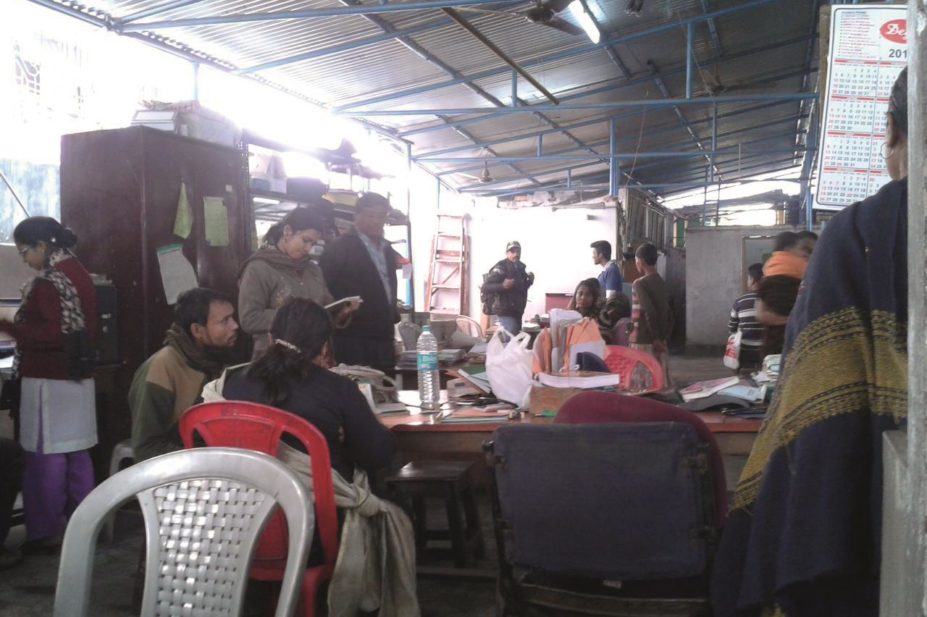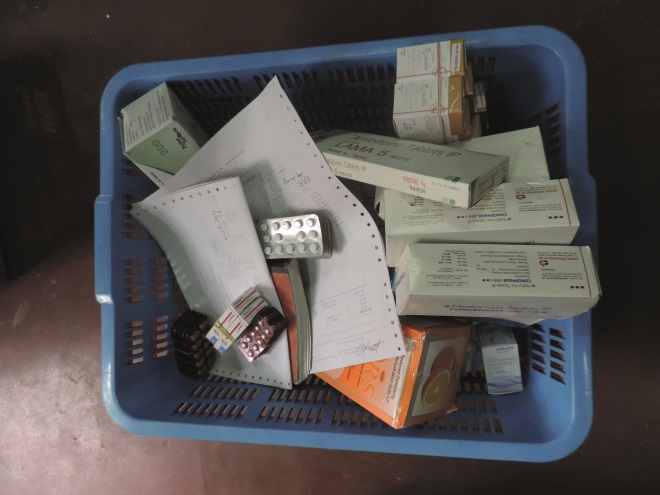
Amritpal Atwal
I had been working in hospital pharmacy for three years and wanted to change my career trajectory. So when my dreams of being a Blue Peter presenter got dashed, I decided to complete an overseas volunteer placement. I spent two years before my trip saving money, carrying out research and deciding where I wanted to go.
The first hurdle was trying to find a placement. I discovered that, because of the current economic environment, the number of organisations providing pharmacy placements has declined over the years. After hours of searching online, sending emails and having conversations with colleagues, I eventually found Calcutta Rescue. This Indian non-governmental organisation provides free healthcare for the underprivileged in Kolkata with four outpatient clinics, outreach programmes and a fair trade handicraft store.
After a successful telephone interview and a meeting with the trustees, I set off to Kolkata for six months in January 2014. I had been to India before but this was my first visit to West Bengal. Kolkata is a complicated and historical city and I had never been anywhere like it before. Going in January meant that I was present for the national election in April and the rallying beforehand. Learning about the political parties and what they were promising for the country was an excellent insight to Indian life.
A typical day
My main role was to run the pharmacy, which involved acting as the senior pharmacist in the dispensary. I trained local pharmacy staff on updated guidelines and helped them to use the equipment available properly. I was involved in sorting any donated medicines, observing HIV clinics, and contacting local pharmaceutical companies to acquire new donations. I also sat on the medical audit committee which decides how the organisation’s funds are distributed.
My typical day started at 9am. I worked at the main pharmacy and answered emails seeking information about medicines. I was also involved in several projects, one of which was to create a medicines formulary for the organisation. Additionally, I sorted donations and checked the orders for the clinics. I left at lunchtime to attend the clinics, check the stock control and work on any projects that were required. I would finish work by 3pm.
Useful donations

Source: Amritpal Atwal
Just because the donated drugs were free, it did not mean they had to be used
During my time in Kolkata I learnt a lot about useful and less useful donations. For example, we often received doctors’ samples from pharmaceutical companies. These samples were usually drug combinations that were not commonly used and were inappropriate for the patients at our clinic. Just because the drugs were free, it did not mean they had to be used.
I found it interesting to learn how to cope with limited resources. In the NHS we may take for granted how many options are available for a patient’s treatment. It was exciting that the knowledge I gained at university was still applicable in India and I could substitute alternatives when required.
New experiences — and new climate
Giving up the security of your job, home and friends to go volunteering for a year may seem romantic. There are many advantages to a trip like this, including meeting new people, living in a new environment, learning about new aspects of pharmacy and working with different resources. These experiences can make you more versatile and humble.
There are some disadvantages to living in Kolkata. Sometimes the heat is unbearable — I would often feel drowsy and fall asleep in the pharmacy! I had true admiration for the construction workers who were lifting heavy materials while I was complaining about typing up reports.
Additionally, it can be challenging to gain the trust of colleagues at work because they become accustomed to fleeting volunteers. Being a woman is also difficult in India. Although I was prepared for this, it can be frustrating to be restricted in your work because of your gender. The local people find your opinions less valuable than those of male colleagues and it can be difficult to complete some tasks. However, with persistence I gained the respect of my colleagues. This culture will not change overnight, but ongoing support for strong female role models will help to make a difference.
This experience helped me to see my career from another perspective and add to my bank of knowledge. I understand that volunteering is not for everyone and at times it was lonely and frustrating work. However I believe I am a better pharmacist because of it.


